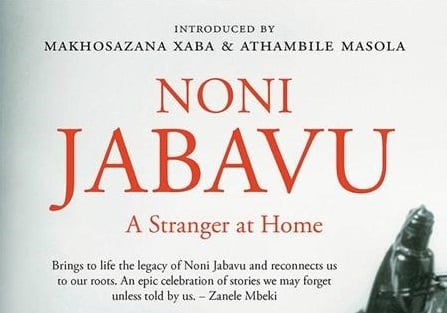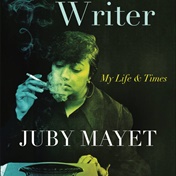
This book represents a high point in my journey with Noni Jabavu. I first read about her in 2009 when I began writing for the Daily Dispatch.
I was a student at the time and writing for the Daily Dispatch was a milestone for a young woman living in the small student town of Grahamstown (now Makhanda) in the Eastern Cape.
I had grown up reading the newspaper with my dad on Saturday mornings. While he read the first half of the paper, I would begin with The Chiel, which was a quirky section with riddles and literary musings (it has since been replaced by the opinion and analysis section).
We would swap sections and I would read the news as well.
I never imagined that one day my writing would appear in the same newspaper, as well as other national newspapers such as the Mail & Guardian and the Sunday Independent.
But I felt a sense of unease because people were responding to me as though I was exceptional, as there were so few black women occupying the public discourse and opinion pages at the time.
I wanted to see my writing as part of a broader conversation with other women writers. Discovering that Jabavu had also written columns for the newspaper more than 40 years before me opened a door to questions about her erasure.
When I started writing for the Daily Dispatch, I read the works of Nomalanga Mkhize, Nomboniso Gasa and the late Kazeka Mashologu, as some of the black women who were contributing to the opinion pages in newspapers.
The fact that I cannot recall many other names of black women journalists requires a deeper look into the archives and poses difficult questions about the nature of erasure or absence alluded to in the introduction.
My unease led me to ask questions: Why were there so few black women writers in my curriculum?
Where were black women’s voices being heard?
It wasn’t good enough for me that most black women found expression in church, as I had seen in my childhood.
I wanted to know the spectrum of women’s involvement in public life. I began to google “black South African women writers”. It was a furious quest fuelled by a feverish desperation.
Jabavu emerged in one of my searches and I breathed a sigh of relief.
Soon after I found a copy of Women Writing Africa, a four-part anthology series that confirmed my hunch: black women have been writing and participating in the public discourse for centuries, but the colonial and patriarchal framework in my education refused to acknowledge these women’s voices or see them as valuable.
During my honours year, a friend of mine introduced me to Nontsizi Mgqwetho’s poetry from the 1920s newspaper Umteteli wa Bantu.
Mgqwetho’s poetry was renewed when it was compiled into the book The Nation’s Bounty and, in the same way, Jabavu’s words have also been renewed into a book rather than being buried in an old newspaper.
I knew that Jabavu had written two books, but they were not available in bookstores I visited. It was as though I had imagined them into being.
I eventually found a copy of The Ochre People (1963) by mistake, in a library at a monastery on the edge of Makhanda, while on a visit for a writing retreat.
It felt as though I had found Jabavu in the flesh.
It was only years later that I could find copies of both of Jabavu’s books in what felt like a serendipitous moment in a store for antique books in Johannesburg.
Finding the books felt like an invitation from Jabavu that I could not refuse: read my work and bring me out of obscurity.
Since then, I have been writing about other black women writers and women who occupied the public discourse.
Makhosazana Xaba mentioned the research I did of The Bantu World, which is a start to more explorations and writing I hope to do.
I hope to write about Frieda Bokwe Matthews’ writing in the same newspaper, alongside Rilda Marta, as their writing is an example of how women wrote about the ways in which they occupied the world.
Marta’s letter, in which she wrote about her trip to America, appeared in 1935 and Matthews wrote about her trip to London – including an anecdote about meeting young Jabavu on this trip – in a letter which is a reflection for her readers.
Like Jabavu’s writing, these women’s work offers an image of the kind of worlds in which women lived beyond the narrow prescriptions Makhosazana mentions.
My favourite column, Smuts and I, published in February, demonstrates the complex nature of Jabavu’s life.
What did it mean for a young preteen girl to refer to General Jan Smuts as Oom Jannie and describe him as a “jolly old man; he talked non-stop”?
Jabavu describes her childhood as characterised by “nonracial friendliness and contacts between its resident Boers, English, natives – such names as Taylor, Glass, Burl, Tremeer, Jabavu, Bokwe and so on”.
This seems counter-intuitive to the grand narrative about race relations in early 20th century South Africa. It is both surprising and unsurprising that the views she shares about race are still pervasive today in conversations about race relations in South Africa.
And this is the beauty of this book:
Her writing about the importance of reading is still relevant today and the once wildly successful Abantu Book Festival is an answer to Jabavu’s questions about the nature of reading culture in black communities. When I consider the current debates about race relations and class, Jabavu’s writing seems particularly poignant.
When I see the expanse of gated communities and secured complexes in the suburbs and I hear about the racism that continues unabated in schools that retain a white majority, I am reminded of the question she poses in the column Far different north, in December:
“What is apartheid protecting South African whites from?”
Today the question still begs: What are white South Africans protecting themselves from?
Her writing about the Ochre People of Transkei is another example of the exploration of the past which offers us perspectives about the present.
Like her book The Ochre People, this article is an exploration of Jabavu’s relationship with amaqaba – those who continue to use ochre and resist Westernisation – as someone who comes from an elite, educated family.
This exploration is captured in her questioning: “But I asked myself, why do I never see ‘Christian, school people’ talking to our beautiful ochre people?”
There is something existential in this question when read in the context of students demanding a decolonised education in South Africa today.
How will decolonisation happen if those who are educated in the hallowed halls of universities are not in conversation with those outside the academy who may have the answers?
Masola is a writer, researcher and teacher at the University of Cape Town




 Publications
Publications
 Partners
Partners









